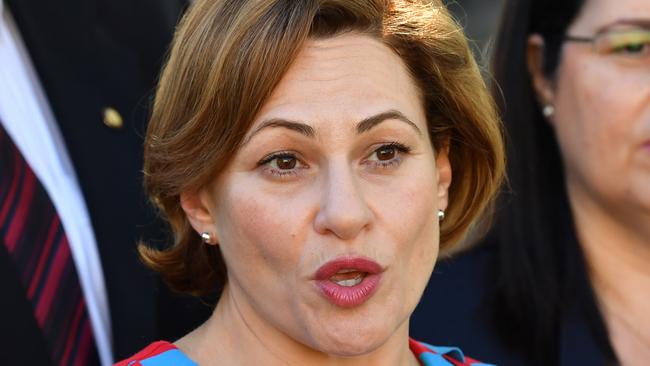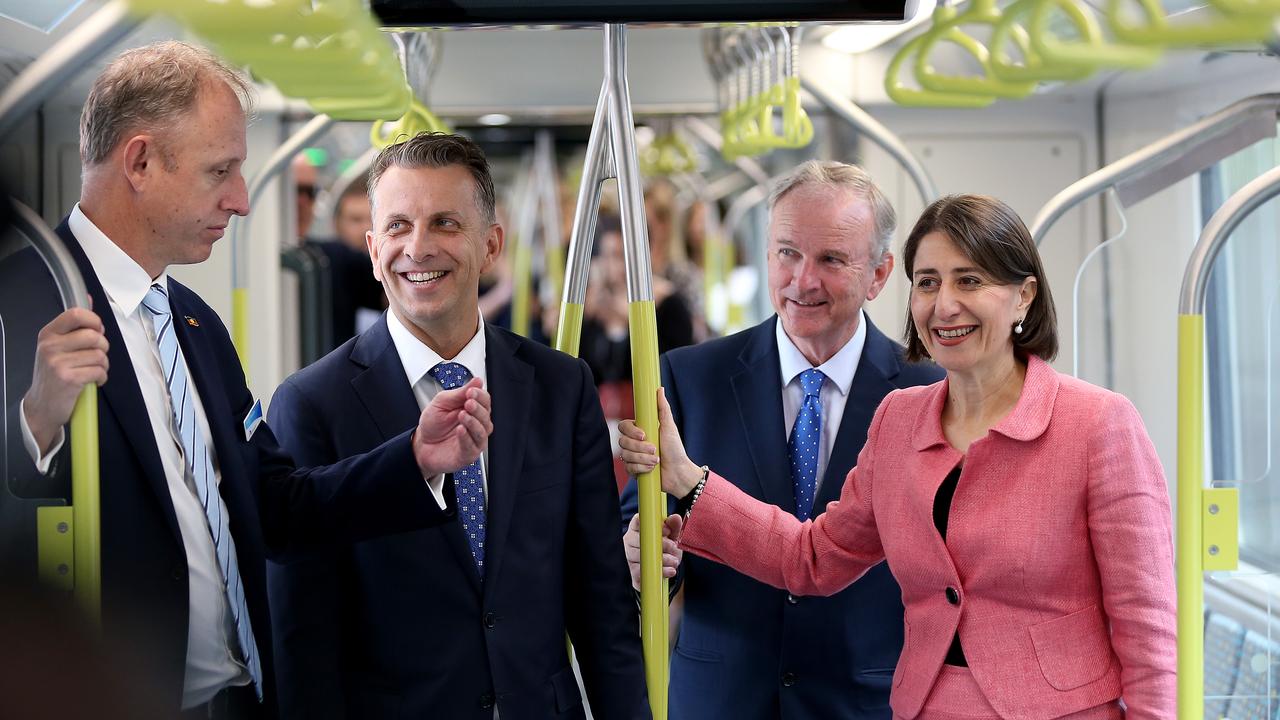Coal boost to fund new Trad spending in Queensland
Queensland Treasurer Jackie Trad will bank on a $3.7bn boost in coal royalties to fund a spending spree.

Queensland Treasurer Jackie Trad will bank on a $3.7 billion boost in coal royalties to fund a spending spree on services, infrastructure and industry incentives in her first budget today.
The Deputy Premier and member of the Labor left faction — who last year led a revolt against generous incentives for Adani’s proposed coalmine — taps into the rebounding resource sector to deliver on Palaszczuk government election promises.
Despite resources delivering $16bn in royalties over four years, public debt is projected to continue climbing from $70bn this year to $83bn in 2021-22.
Ms Trad will announce new and accelerated spending on public works, saying she would rather leave Queenslanders with higher debt than a harmful “infrastructure deficit”.
The Treasurer last night acknowledged the mining sector’s “important contribution” to the state’s finances but insisted the economy needed to diversify.
“We can’t just be a quarry or a beach — we need to also use our brains,” said Ms Trad, whose electorate of South Brisbane is coveted by the Greens. “That’s why through our ‘advance Queensland’ strategy we are backing innovation, entrepreneurship, business growth and new industries.”
Australian thermal coal prices this week rose to their highest level since 2012 amid hot weather across northern Asia and disrupted coal exports from South Africa.
Fuelled by Queensland’s mature coal-seam-gas industry, petroleum royalties will surge to $1.7bn over four years.
This year’s operating surplus is expected to come in at $1.512 billion, a $1.012 billion improvement on what was forecast six months ago.
Opposition Treasury spokesman Tim Mander said a Liberal National government would “stop the waste” and “live within our means”, but declined to give specific examples. “It’s very easy to invest in infrastructure if you are simply going to add it to the taxpayers’ credit card. That $83bn of debt is going to cost Queenslanders $3.5bn a year in interest — that’s $7000 a minute,” he said.
Pradeep Philip of Deloitte Access Economics said infrastructure spending was “critical” given population growth, but it was unclear whether Ms Trad was “serious” about budget repair.
“When it comes to debt, the question is not only just about the absolute dollar figure but, importantly, whether it is sustainable as a proportion of the economy, and whether it is serviceable as a percentage of revenue,” he said.
Queensland lost its AAA credit rating in 2009 amid the global financial crisis, pushing both Labor and the LNP to embrace privatisations to address the debt.
With major privatisations now politically unpalatable, the budget will feature new taxes including: a land-tax surcharge on properties valued above $10m; a tax on new luxury-car purchases; higher stamp duty for foreigners buying property; and a 15 per cent tax on some online wagering. The state will also introduce a waste levy of $70 a tonne on garbage.
Ms Trad has warned that Queensland’s share of GST revenue would fall $400 million next year. Health spending will rise four times faster than population growth, with Labor committed to adding 100 ambulance officers and 3500 nurses and midwives to the public payroll.
Infrastructure spending includes $897m to upgrade the M1 motorway and a commitment to fully fund the $5.4bn Cross-River Rail project, although a federal Labor government would provide a $2.2bn subsidy if it won power.
There will also be $250m over two years to build classrooms.


